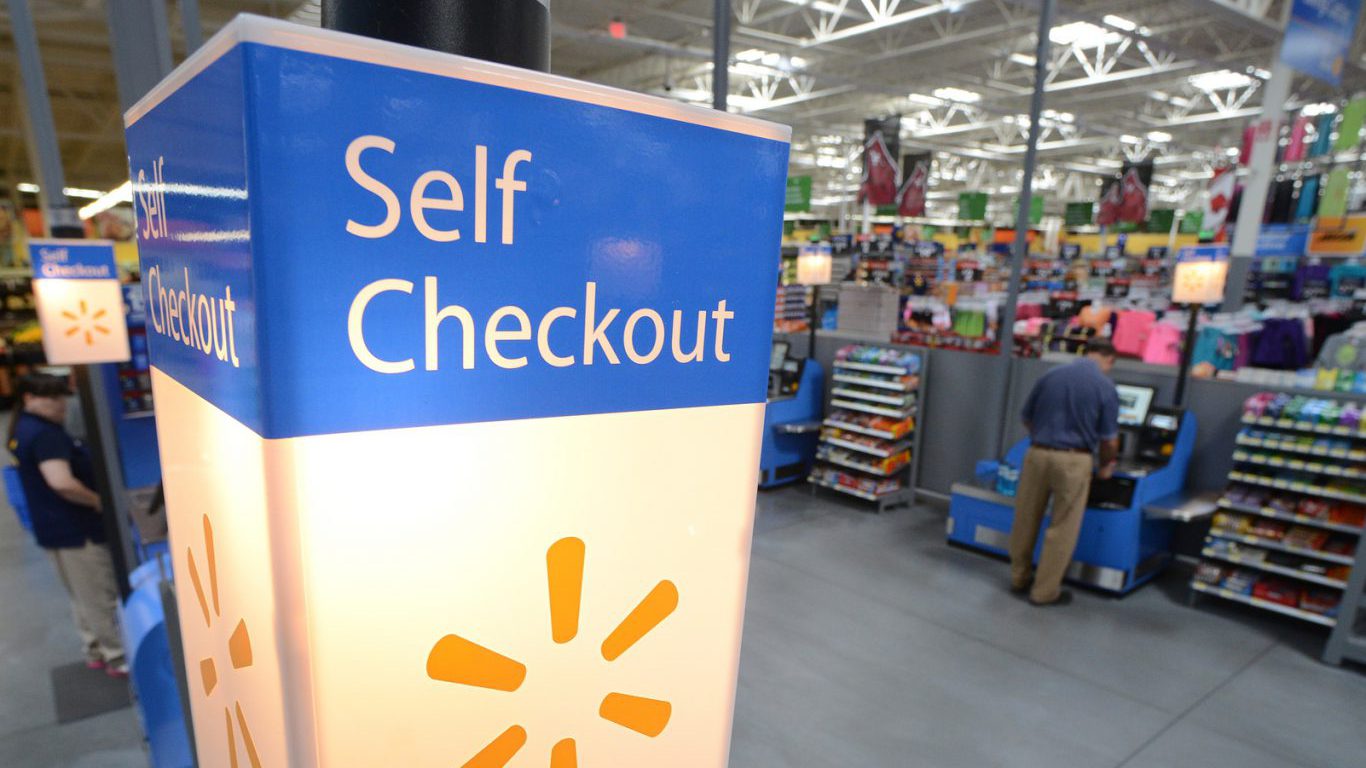Retail
Wal-Mart $1 Minimum Wage Increase Costs It $2.7 Billion

Published:
Last Updated:

Wal-Mart Stores Inc. (NYSE: WMT) will raise the pay of it minimum wage workers to at least $10 an hour. And, for those entry-level workers hired after January 1, the increase will be from $9 to $10 once they have completed a certain amount of training. Wal-Mart says that the increases will cost it much more than the $1, time hours worked a year, times number of workers. Its estimate of the program’s total is $2.7 billion over two years.
Wal-Mart laid out the investment, and there is almost no way to calculate if it is accurate from the outside.
For “paid time off”:
Walmart and Sam’s Club are launching a new, simplified PTO policy, effective March 5, 2016 that will streamline paid vacation, sick time, personal time and holiday time into one category. And the one-day wait to use sick time will be eliminated, as promised. When the plan rolls out in March, both full- and part-time associates will earn PTO based on tenure and hours worked.
In addition to PTO, Walmart is providing a new, Short Term Disability Basic plan at no cost to full-time hourly associates. Effective Jan. 1, 2016, the plan offers more financial protection to workers who need to be away from work for an extended period of time due to their own medical needs such as an illness, injury or having a baby. The basic plan will pay 50 percent of a worker’s average weekly wage, up to $200, for up to 26 weeks. Walmart is also offering a Short Term Disability Enhanced plan, which costs less than the company’s prior voluntary plan and provides more coverage. Associates would receive up to 60 percent of their average weekly wage with no weekly maximum for up to 26 weeks.
If having a baby is a disability.
It seems $1 is not one $1. It is, according to Wal-Mart, $2.7 billion over two years.
The thought of burdening your family with a financial disaster is most Americans’ nightmare. However, recent studies show that over 100 million Americans still don’t have proper life insurance in the event they pass away.
Life insurance can bring peace of mind – ensuring your loved ones are safeguarded against unforeseen expenses and debts. With premiums often lower than expected and a variety of plans tailored to different life stages and health conditions, securing a policy is more accessible than ever.
A quick, no-obligation quote can provide valuable insight into what’s available and what might best suit your family’s needs. Life insurance is a simple step you can take today to help secure peace of mind for your loved ones tomorrow.
Click here to learn how to get a quote in just a few minutes.
Thank you for reading! Have some feedback for us?
Contact the 24/7 Wall St. editorial team.